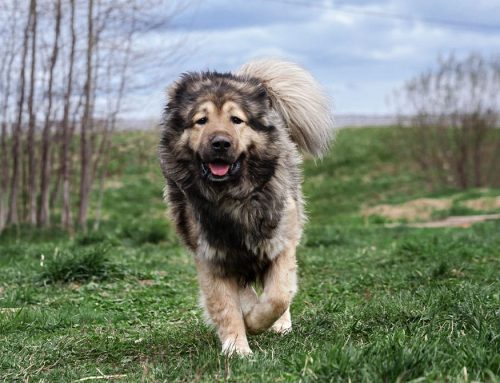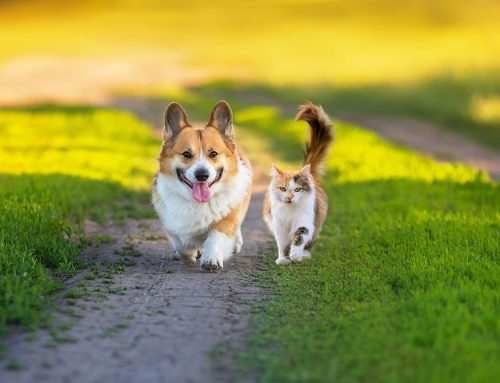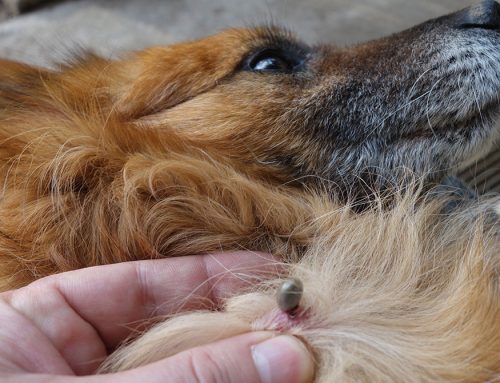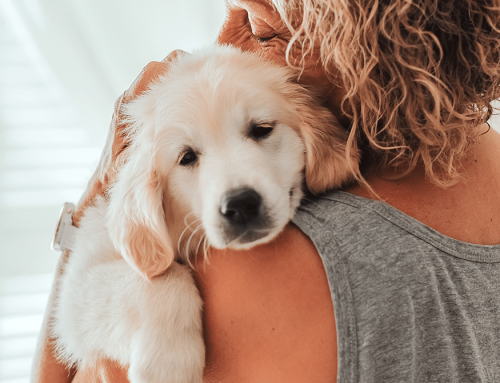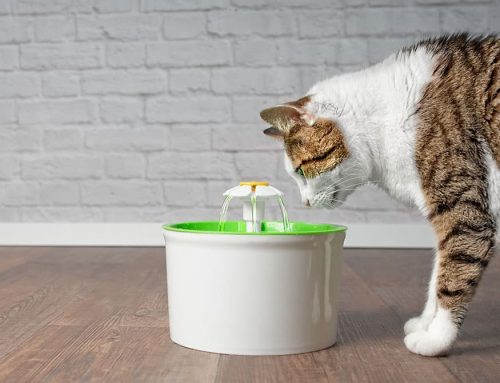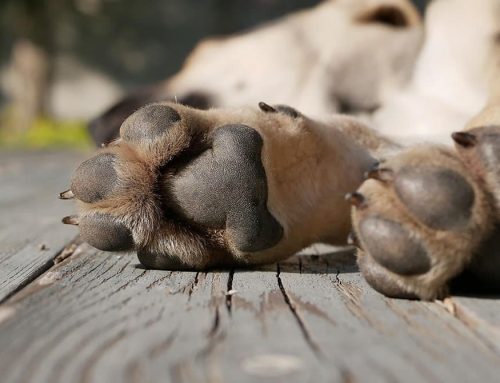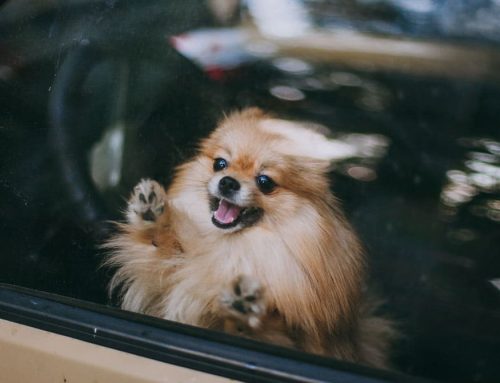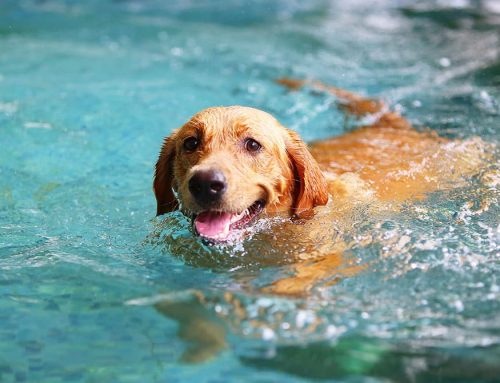As the holiday season approaches, the excitement of festive gatherings, delicious meals, and beautiful decorations fills the air. However, there are many holiday specific risks for pets. From Halloween through New Year’s, it’s crucial to take extra precautions to ensure our furry companions stay safe and comfortable.
Here are the top 10 ways you can keep your pets out of harm’s way during the holidays:
Halloween Hazards
Halloween can be particularly challenging for pet owners. The combination of unfamiliar visitors, strange costumes, and an abundance of candy can create a stressful environment for pets. Here’s how to keep your pets safe:
- Candy and Chocolate: Halloween night is filled with an assortment of candy, but many sweets, especially chocolate, are toxic to pets. Keep all candy out of reach, and make sure children understand not to share their treats with pets. Chocolate, especially dark chocolate, can cause vomiting, diarrhea, and other health issues. Xylitol, a common sugar substitute in candies and gum, is also extremely toxic to pets.
- Costumes: While it can be fun to dress up your pet, ensure that any costume is comfortable and doesn’t restrict their movement, breathing, or vision. Avoid costumes with small parts that could be chewed off and swallowed. If your pet seems distressed or uncomfortable in a costume, it’s best to skip it.
- Strangers and Noise: The constant ringing of the doorbell and the presence of costumed strangers can be stressful for pets. Consider keeping them in a quiet room away from the front door, especially if they tend to be anxious or protective. This will help prevent them from becoming overly stressed or trying to escape when the door is opened.
Keep Table Scraps Out of Reach
Holiday feasts are one of the best parts of this season, but many of the foods we enjoy can be dangerous for pets. Some key foods to avoid sharing with your pets include:
- Turkey Bones and Fatty Foods: Turkey (and chicken) bones can splinter and cause choking or internal injuries. Fatty foods, like gravy and stuffing, can lead to pancreatitis, requiring veterinary treatment.
- Toxic Ingredients: Some common ingredients include onions, garlic, grapes, raisins, and chocolate, which are all harmful to pets. Even small amounts can cause health issues and we recommend keeping food that contains these ingredients away from pets.
- Alcohol and Caffeinated Beverages: These can be extremely dangerous to pets, leading to symptoms ranging from vomiting to seizures and can be fatal in severe cases..
We recommend offering your pets safe, pet-friendly treats so they can partake in the celebrations without risk. If you have a pet who likes to beg for table scraps, it may be best to keep them in a separate room. That way, guests are not tempted by “puppy dog eyes”.
Secure Trash Bins
The aroma of holiday foods can smell irresistible to pets, and the trash bin can be full of dangerous items. From food scraps to packaging, the contents of your garbage could cause choking, poisoning, or digestive blockages. Make sure trash bins are secure and out of your pets’ reach. Consider using a bin with a tightly fitting lid or placing it in a cabinet or pantry that your pet can’t access.
A Safe Haven for Your Pets
The hustle and bustle of holiday gatherings can be overwhelming for pets. With guests coming and going, loud conversations, and changes to their usual routine, pets can become fearful, anxious, or stressed.
Providing a quiet and comfortable space where your pet can retreat if things get too hectic helps alleviate fear, anxiety, and stress. Ensure this area has familiar items like their bed, toys, and water. If your pet is particularly anxious, consider playing classical or reggae music, or utilizing Fear Free pheromones, like Adaptil and Feliway, in the safe space to eliminate stress inducing pheromones and other unfamiliar odors.
Educate Guests On Pet Safety Rules
Guests may not be aware of the dangers that holiday foods and activities can pose to pets. Before your gathering, inform your guests not to feed your pets any table scraps and make them aware of any specific rules or restrictions you have in place for your pets’ safety. For instance, if you have a pet that is prone to bolting out the door, ask your guests to be mindful when entering or leaving your home. Mention specific foods that can cause health issues if fed, so that your guests make informed decisions.
Pet-Proof Your Holiday Decor
Holiday decorations add a festive touch to your home, but they can also be hazardous to pets. When decorating, consider the following:
- Christmas Trees: Secure your tree to prevent it from toppling over if your pet decides to climb or play with it. Avoid using tinsel, which can be ingested and cause intestinal blockages.
- Lights and Cords: Ensure that electrical cords and lights are out of reach or covered to prevent pets from chewing on them, which could result in electric shocks.
- Ornaments and Small Decorations: Keep fragile ornaments, especially those made of glass or containing small parts, higher on the tree or in areas that pets cannot access. These can cause choking or injuries if broken or ingested.
- Holiday Plants: Many traditional holiday plants are toxic to pets. Poinsettias, holly,
mistletoe, and certain types of lilies can cause symptoms ranging from mild gastrointestinal upset to more severe issues like heart problems or kidney failure. We recommend using artificial flowers as a pet-safe alternative.
Keep Vet Contact Information Handy
Even with the best precautions, accidents can happen. Make sure you have the contact information for your regular veterinarian and the nearest emergency vet clinic readily available.
Combat Holiday Stress with Affection
The holidays can be stressful for pets due to changes in their environment and routine. Combat this by giving your pets extra love and attention. Spend some quiet time with them, engage in their favorite activities, and maintain as much of their regular routine as possible. A little extra TLC can go a long way in keeping them calm and happy during the festive season!
Be Cautious with Holiday Treats
If you plan on giving your pet a gift, make sure it is safe and appropriate. Avoid toys with small parts that can be chewed off and swallowed, and choose treats that are specifically designed for pets. Rawhide is a common treat to see in the holiday section for dogs, however, it becomes soggy quickly, posing as a choking hazard. If swallowed whole, there is potential risk of a blockage due to the inability to digest. We recommend using rawhide alternative chews to avoid these risks.
Traveling Safely with Pets
If you’re traveling with your pet, ensure they are safely secured in your vehicle. Use a pet carrier or travel crate to keep them safe during the journey. The best place for your pet’s carrier to sit is on the backseat floorboard of the passenger side. This allows you to keep a close eye on them while driving, and also keeps their carrier secure. If you are using a crate, we recommend using a large vehicle where the crate easily fits in the back with the seats down. Be sure to secure the crate in place so that it will not slide while driving. Make sure to pack their essentials, such as food, water, medications, and familiar items like a blanket or toy to make them feel more comfortable during the trip.
The holiday season is the time of the year where, with a little extra care, your pets can safely enjoy the festivities alongside you. By being mindful of potential hazards and taking proactive steps to protect your pets, you can ensure a happy and healthy holiday season for every member of your family!


